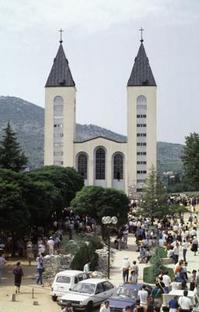“I brought Pope Benedict’s book On Conscience,” said my friend over breakfast this morning. Well actually he wrote it as Cardinal Ratzinger, but that’s besides the point. “You’re more than welcome to borrow it. It’s a great read that answers many of your questions.”
My friend is a theologian who specializes in the sacrament of reconciliation and the theology of conscience, confession, forgiveness and healing. With all the questions about Maciel, his methodology, and the formation of consciences in the movement he founded, I had invited my friend to breakfast in order to tap her expertise as a theologian and spiritual director. Basically we discussed issues that have been discussed here and at other blogs like Life After RC, issues surrounding reports of visible signs of Maciel’s final impenitance, the subjugation of conscience to utilitarian purpose within the movement, and the seeming inability of Legion superiors to recognize or apologize adequately for the horrors inflicted upon Maciel’s victims.
Opening Ratzinger’s book, or the English translation published by Ignatius Press, God directed me to the following passage – one that provides a good perspective of what we see happening with the movement:
Gorres shows that the feeling of guilt, the capacity to recognize guilt, belongs essentially to the spiritual make-up of man. This feeling of guilt disturbs the false calm of conscience and could be called conscience’s complaint against my self-satisfied existence. It is as necessary for man as the physical pain that signifies disturbances of normal bodily functioning. Whoever is no longer capable of perceiving guilt is spiritually ill, “a living corpse, a dramatic character’s mask,” as Gorres says.
Monsters, among other brutes, are the ones without guilt feelings. Perhaps Hitler did not have any, or Himmler, or Stalin. Maybe Mafia bosses do not have any guilt feelings either, or maybe their remains are just well hidden in the cellar. Even aborted guilt feelings… All men need guilt feelings.
By the way, a look into Sacred Scripture should have precluded such diagnoses and such a theory of justification by the errant conscience. In Psalm 19:12-13, we find the everworth-pondering passage, “But who can discern faults.” That is not Old Testament objectivism, but profoundest human wisdom. No longer seeing one’s guilt, the falling silent of conscience in so many areas is an even more dangerous sickness of the soul than the guilt that one still recognizes as such. He who no longer notices that killing is a sin has fallen farther than the one who still recognizes the shamefulness of his actions, because the former is further removed from the truth and conversion.
Not without reason does the self-righteous man in the encounter with Jesus appear as the one who is really lost. If the tax collector with all his undisputed sins stands more justified before God than the Pharisee with all his undeniably good works (Luke 18:9-14), this is not because the sins of the tax collector were not sins or because the good deeds of the Pharisee were not good deeds. Nor does it mean that the good that man does is not good before God, or the evil, not evil or at least not particularly important.
The reason for this paradoxical judgment of God is shown precisely from our question. The Pharisee no longer knows that he too has guilt. He has a completely clear conscience. But this silence of conscience makes him impenetrable to God and men, while the cry of conscience that plagues the tax collector makes him capable of truth and love. Jesus can move sinners. Not hiding behind the screen of their erroneous consciences, they have not become unreachable for the change that God expects of them–of us. He is ineffective with the “righteous” because they are not aware of any need for forgiveness and conversion. Their consciences no longer accuse them but justify them.

 (Translated from the German-language Catholic newspaper
(Translated from the German-language Catholic newspaper